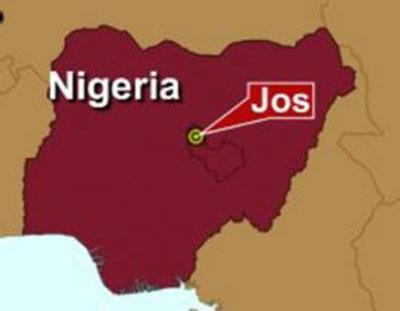The Jos Delusion (I) By Obiwu

The valedictory service for the late Senator Gyang Dantong in the Nigerian capital of Abuja on Wednesday, July 18, 2012, was an occasion for some awkward reflections. Rampaging Fulani gunmen had reportedly killed Dr. Dantong (a federal legislator) and Mr. Gyang Fulani (Majority leader of the Plateau State House) on July 8, during a mass burial for fifty others who had been killed in an earlier raid on July 7 in Matse village, Riyom County of Plateau State. The Boko Haram terrorist group claimed responsibility for the dastardly acts. Senate Leader Victor Ndoma-Egba’s speech at the Abuja valedictory service signaled the embarrassing turn of the whole event. According to a report, Ndoma-Egba’s oration dwelt on a rhetorical humdrum: “Where is the Jos of old? Plateau of old? Haven of peace, melting pot of culture and religions, preferred home of all. Jos, what happened? Plateau, who replaced laughter with tears; who replaced handshakes with bullets and bombs? Who replaced tears of joy with blood? Who replaced love with hatred in a lifetime and why? Life has become too casual and cheap. The senseless bloodletting in our nation must stop.”
The Lagos journalist, Olayinka Oyegbile, shared Ndoma-Egba’s melancholic sentiment about Jos on a Facebook message, when he declared that, “I was born and bred in this lovely city. I spent over 33 years of my life in this city. It was there I knew what life is all about. Today, I ask what has gone wrong? Why all these killings and bloodletting? When other northern towns were witnessing crises we used to say it can never happen in Jos.” Oyegbile, of course, had his heart in the right place. He had most recently published an acclaimed book on the pearl of the North that the mining city supposedly was. Unlike Ndoma-Egba, Oyegbile was not a politician. And though he was born in Plateau State like Senator Dantong and Gyang Fulani, Oyegbile was of Ogbomoso ancestry in southwest Nigeria. His book, Home Away from Home: …History of Ogbomoso People in Jos (2012), is the kind of tribute that is almost impossible to come from the Berom, the Anaguta, and the Jarawa minority groups who are the original natives of the greater Jos community.
Celebrating “the beauty of Jos” is not something that comes naturally to the native citizens of the city. In Northern Nigeria, the Fulani have been known to obsessively cuddle their Caliphate city of Sokoto like a fresh egg, just as the Hausa and the Kanuri are wont to do with their respective homeland cities of Kano and Maiduguri. There is no gainsaying the fact that Hausa-Fulani or Shuwa Arab Islamist extremists have always constituted the flash mobs behind the ethnic and religious genocides that have targeted the Igbo and southern Christians in their Shariah-leaning metropolitan centres of Bauchi, Damaturu, Dutse, Kano, Maiduguri, Potiskum, Sokoto, and Yola for sixty years. It is more mindboggling that Northern minorities – who are mostly Christians – have stood by and often collaborated with, as well as justified, the monstrosities of those bigots, even in their own Middle Belt cities of Jos, Kaduna, Lafia, Makurdi, Minna, and Zango Kataf.
When tourists and settlers speak of “the beauty of Jos,” they generally refer to giant boulders, lush greens, sparkling waters, and undulating plateaus. It’s nothing more than the allure that Odysseus’s deadly sirens have for wandering sailors. It’s never about the native people and the residents, or their lifestyles and values. But a city is not its stones and vegetation; a city is its people and the spirit of place. That’s what Oliver De Coque, the highlife maestro, means by “Ana enwe obodo enwe.” A city is owned. Except it’s dying or dead, a city does not lie forlorn. A city is killed by mischievous silences, devious conspiracies, and willful collaborations in mindless coup plots, genocides, and wars. A city dies a little every time that its gatekeepers and hosts lose themselves in delirium and forget that the guest or settler is sacred and should be accorded the full rights and privileges that common hospitality demands at all times. That is why, despite its so-called ‘beautiful’ landscape and in spite of having been home to Idzia Ahmad and Dan Maraya, Jos does not inspire grand artistic compositions of the scale of such classics as J. P. Clark-Bekederemo’s poem, ‘Ibadan,’ and Dr. Sir Warrior’s song, ‘Ofe Owerri.’
Source: Daily Times Nigeria
